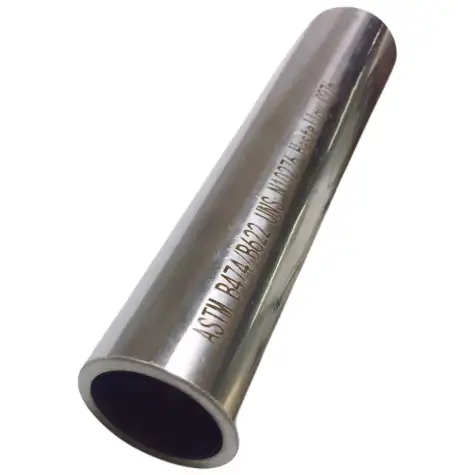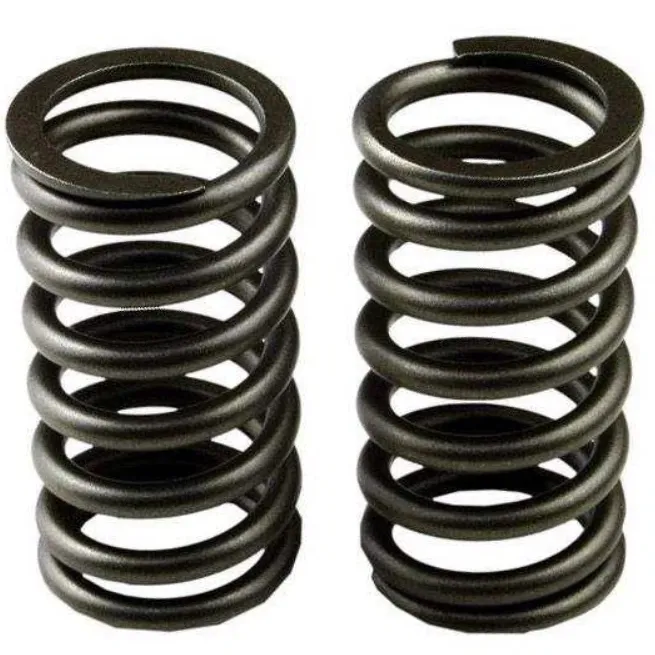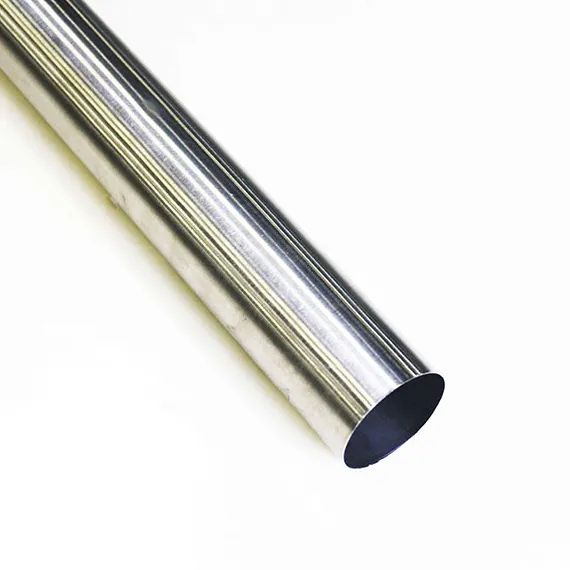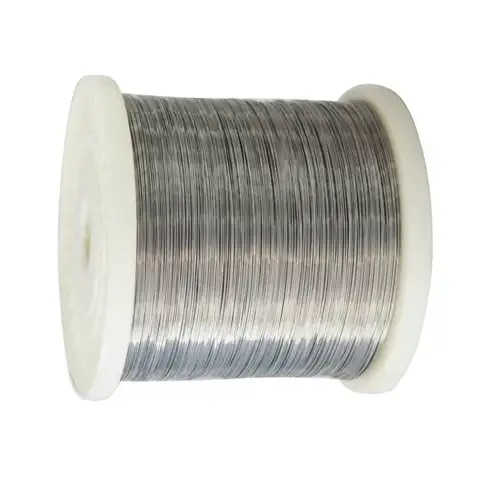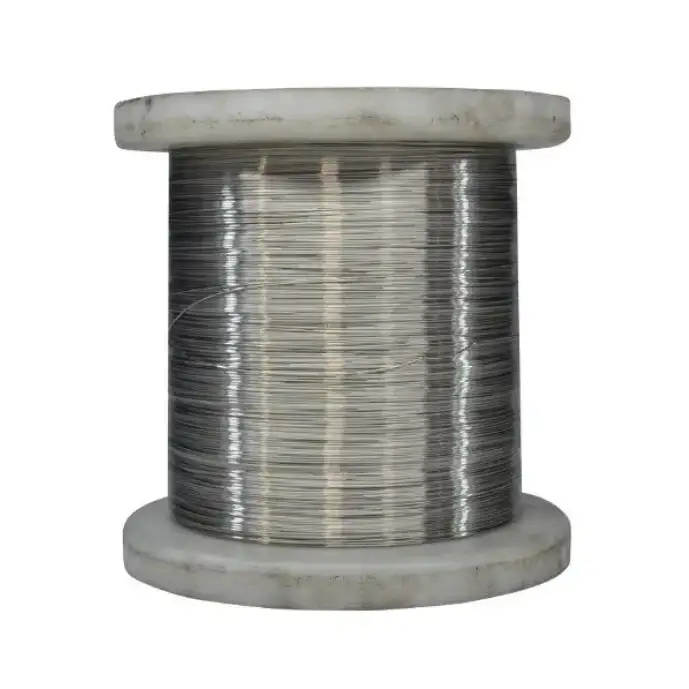Incoloy® 825 pipe (UNS N08825) is a nickel-iron-chromium alloy pipe engineered for high resistance to many corrosive media — notably sulfuric and phosphoric acids, chloride-bearing environments, and sour (H₂S) gas service — while retaining good mechanical strength from cryogenic temperatures up to roughly 538°C. For projects that require reliable corrosion performance together with good weldability and predictable fabrication behavior, Alloy 825 pipe represents a durable, cost-effective choice. MWAlloys supplies ASTM/ASME-graded Incoloy 825 pipe from Chinese mills at 100% factory pricing, with ready stock and rapid dispatch for common sizes.
Product name: Incoloy® 825 Alloy Pipe (UNS N08825 / W.Nr. 2.4858).
Forms offered: seamless pipe, ERW welded pipe, welded tube, custom-fabricated spool pieces, flanges and fittings made from Alloy 825.
Typical markets: oil & gas production (sour environments), petrochemical, chemical processing, fertilizer plants, pulp & paper, seawater service, heat exchangers and flue gas desulfurization.
MWAlloys value proposition: factory direct supply from China, competitive FOB pricing, inventory for fast shipment, complete documentation (MTR / TPI on request), and technical support from experienced metallurgists.
Chemical composition
Below is a consolidated composition table reflecting commonly referenced standards and mill datasheets for Alloy 825 (values shown in weight percent):
| Element | Typical range (wt%) |
|---|---|
| Nickel (Ni) | 38.0 – 46.0 |
| Iron (Fe) | Balance (~22 – 33) |
| Chromium (Cr) | 19.5 – 23.5 |
| Molybdenum (Mo) | 2.50 – 3.50 |
| Copper (Cu) | 1.50 – 3.00 |
| Titanium (Ti) | 0.60 – 1.20 |
| Manganese (Mn) | ≤ 1.00 |
| Silicon (Si) | ≤ 0.50 |
| Carbon (C) | ≤ 0.05 |
| Phosphorus (P) | ≤ 0.03 |
| Sulfur (S) | ≤ 0.03 |
(These ranges come from industry technical bulletins and public material datasheets for Incoloy 825; mill certificates will show the exact number for each heat. )
Mechanical & physical properties (typical / annealed condition)
| Property | Typical value (annealed) |
|---|---|
| Density | ~8.12 – 8.20 g/cm³ (≈ 8.14 g/cm³ commonly quoted). |
| Tensile strength (ultimate) | ~585 – 725 MPa (varies by product form and cold work). |
| Yield strength (0.2% offset) | ~240 – 450 MPa depending on cold work condition. |
| Elongation (in 2") | ≥ 30% (annealed, typical). |
| Hardness (annealed) | ~150 – 200 HB (Brinell typical range; depends on product). |
| Service temperature | Cryogenic up to ~538 °C (1000 °F) recommended maximum for maintaining mechanical toughness. |
Note: values above reflect commonly reported ranges from technical bulletins and supplier datasheets. For design or pressure-vessel calculations always use the certified mechanical values from the mill test report (MTR) for the actual heat and product form.
What is Alloy 825 pipe made of?
Alloy 825 is a nickel-iron-chromium austenitic alloy with strategic additions of molybdenum, copper, and titanium. Nickel content provides resistance to chloride-induced stress-corrosion cracking and high ductility. Chromium and molybdenum improve general corrosion resistance and localized corrosion resistance (pitting/crevice). Copper gives enhanced resistance in reducing acid media (notably sulfuric and phosphoric acid). Titanium acts as a stabilizer, tying up carbon and preventing harmful carbide precipitation in the weld heat-affected zone, which preserves corrosion resistance after welding.
The balanced combination of elements produces an alloy that resists both oxidizing and reducing chemicals in many industrial environments while keeping the metal formable and weldable for typical piping fabrication.
Corrosion performance and service environments
Alloy 825 performs well in:
-
Sulfuric and phosphoric acid conditions (wide concentration and temperature ranges).
-
Reducing media containing H₂S and CO₂ — commonly found in “sour” oil and gas wells.
-
Seawater and chloride-bearing environments, with improved resistance to stress-corrosion cracking compared with many stainless grades.
-
Oxidizing environments within its temperature limitations.
Designers choose Alloy 825 when a mix of resistance to localized attack, good weldability, and predictable mechanical behavior are more valuable than the very high temperature strength offered by precipitation-hardened nickel superalloys. For aggressive chloride environments at elevated temperature, careful evaluation is required.
Applicable ASTM / ASME standards and specifications
Common standards that cover Alloy 825 pipe/tube/related products include (representative, not exhaustive):
-
ASTM B423 / ASME SB423 — Seamless pipe and tubing for nickel-iron-chromium alloys including UNS N08825.
-
ASTM B163 — Seamless ferritic/austenitic alloy tubes where applicable for some heat exchanger tube usages.
-
ASTM B424 / B425 / B704 / B705 — Various wrought product standards that appear in supplier literature for shades of forms.
-
ASME Section II / Section VIII — Design and allowable stresses use material property entries tied to ASME/ASTM data.
-
UNS N08825 and W.Nr. 2.4858 are widely used cross references to identify alloy chemistry.
Always cross-check project specs for the required standard (e.g., whether the purchaser requires ASTM B423 or a particular ASME/EN designation).
Inconel 718 vs Incoloy 825
Both are nickel-base alloys, yet they serve different engineering purposes:
-
Primary function: Inconel 718 is a precipitation-hardenable nickel-chromium-niobium alloy optimized for high-temperature strength and creep resistance (turbine discs, fasteners, high stress, high temp). Incoloy 825 targets chemical corrosion resistance with good ductility and weldability.
-
Temperature capability: 718 retains useful mechanical properties well above 538°C and is commonly used to ~650–700°C with design considerations. Alloy 825 is typically recommended up to about 538°C (1000°F) for routine service to avoid embrittlement risk.
-
Alloying balance: 718 contains Nb/Niobium and higher strengthening elements for age hardening. 825 contains copper and molybdenum for corrosion resistance.
-
Weldability: 825 is more forgiving in welded condition without the need for complex post-weld heat treatment; 718 often requires controlled heat treatment / ageing to obtain design strength.
When to choose which: select 825 for corrosion-dominated environments (chem plants, sour wells) where extreme temperature strength is not a primary requirement. Select 718 where sustained high strength at elevated temperature is critical.
Equivalent alloys and trade names
-
UNS: N08825
-
W.Nr.: 2.4858
-
Trade names / equivalents: INCOLOY® 825 (Special Metals), Alloy 825, No. 2242, SM2242®, Sanicro® 41 (depending on region and supplier). Many suppliers will cross-reference 2.4858 / N08825.
Size, schedules and weight (how to estimate pipe weight)
Pipe weight depends on outside diameter (OD), wall thickness (or schedule), and material density. Use the standard formula:
Weight per meter (kg/m) = (π/4) × [OD² − (OD − 2×t)²] × density
Where OD and t are in meters, density in kg/m³ (for Incoloy 825 use ≈ 8,140 kg/m³).
Sample quick reference (typical) — approximate weights for Incoloy 825 pipe (rounded):
| Nominal pipe size | OD (mm) | Schedule 40 wall (mm) | Approx. kg/m |
|---|---|---|---|
| 1/2" | 21.34 | 2.11 | 0.45 |
| 1" | 33.40 | 3.38 | 1.10 |
| 2" | 60.33 | 3.91 | 2.70 |
| 4" | 114.3 | 6.02 | 7.10 |
| 8" | 219.1 | 8.18 | 17.5 |
(These are example figures for budgeting; suppliers often provide full OD/wall/weight charts per ASTM B423 or customer request.)
Global price overview 2025 (representative FOB ranges)
Market prices for nickel alloys fluctuate with raw material costs, alloy form, country of origin, MOQ and fabrication. The table below gives indicative FOB China ranges seen in market sources during 2025; use these for ballpark budgeting only:
| Product form | Indicative FOB China (USD/kg) — 2025 range |
|---|---|
| Plate / sheet | $40 – $60 / kg |
| Round bar | $45 – $65 / kg |
| Seamless pipe / tube (small OD) | $48 – $75 / kg depending on OD & wall |
| Welded pipe (ERW) | $35 – $55 / kg |
| Fittings / flanges (forged) | $55 – $90 / kg (higher due to machining and forging) |
Important commercial note: these ranges are collected from public supplier quotes and market posts; final pricing requires current mill availability, alloy surcharge, certification needs, and freight. MWAlloys offers factory-direct pricing and can provide firm quotes with lead time and freight terms on request.
Fabrication, welding and quality control
-
Welding: Alloy 825 welds readily with standard nickel-base filler metals for corrosion resistance; in many cases, post-weld heat treatment is not required due to limited sensitization risk with designed chemistry and Ti stabilization. Follow recommended procedures for preheat and interpass when welding thick sections.
-
NDT & certificates: Typical purchaser documentation includes Mill Test Reports (MTR / EN 10204), PMI or chemical testing on sample, hydrostatic testing for pressure pipe, and NDT such as RT/UT per contract.
-
Heat treatment: Alloy 825 is normally supplied in annealed condition; cold-worked or pilgered product forms exist where higher strength is needed. Avoid prolonged service above recommended temperatures.
Typical applications and case notes
-
Oil & Gas: Downhole tubulars, control lines, and surface piping where H₂S/CO₂ corrosion risk exists.
-
Chemical & fertilizer plants: Process lines handling sulfuric or phosphoric acids, organic acids, halide salts.
-
Power plants & FGD: Piping in flue gas desulfurization systems.
-
Heat exchangers: Tubes and tubing for corrosive fluids because of the alloy’s resistance and fabricability.
Case note: designers sometimes choose Alloy 825 for retrofit projects where existing carbon steel piping requires corrosion resistance but geometry or welding constraints prohibit exotic fabrication. Project specifics should always be validated with corrosion engineering analysis and full material test certificates.
Inspection, traceability and certifications
Buyers should request:
-
Full mill MTR (chemical + mechanical) per EN 10204 3.1 or equivalent.
-
Heat/lot numbers on material and matching documentation.
-
NDE records (hydrostatic/UT/RT) where specified.
-
Third-party inspection (TPI) for high-value or safety-critical projects.
MWAlloys provides standard MTRs, inspection photos, and can arrange third-party inspection when required.
MWAlloys commercial & logistical note
MWAlloys offers:
-
Direct factory pricing from our Chinese partners (no trading markup).
-
Ready stock for common pipe sizes in specified wall thicknesses and lengths.
-
Fast processing for small to medium orders; typical lead times for stocked items: days to 2 weeks (confirm per PO).
-
Technical support for material selection, matching customer specs, and documentation packages.
Contact MWAlloys sales with project specifications (ASTM/ASME standard required, size/schedule, quantity, delivery port) for a firm, dated commercial offer.
FAQs
-
What makes Alloy 825 different from common stainless steels?
Alloy 825 has much higher nickel and controlled molybdenum/copper which gives superior resistance to reducing acids and chloride-induced cracking when compared with typical stainless steel grades. -
Is Alloy 825 suitable for sour oilfield service (H₂S)?
Yes; Alloy 825 shows good performance in many sour environments, but perform a detailed corrosion engineering analysis for specific pressures, temperatures and H₂S partial pressures. -
Can Alloy 825 be welded without post-weld heat treatment (PWHT)?
Usually yes; the alloy chemistry and Ti stabilization reduce sensitization risk. However, follow welding procedure and project QA requirements. -
What ASTM standard should I specify for seamless Alloy 825 pipe?
ASTM B423 / ASME SB423 is commonly referenced for seamless nickel-iron-chromium alloy pipe (UNS N08825). -
What is the density of Incoloy 825?
Approximately 8.12 – 8.14 g/cm³ (≈ 8,140 kg/m³). -
How do I estimate pipe weight quickly?
Use the cross-section area difference formula with OD, wall thickness and density (example and formula were provided above). -
Is Alloy 825 magnetic?
No; it is an austenitic nickel-base alloy and is generally non-magnetic in the annealed condition. -
What are common equivalent designations?
UNS N08825, W.Nr. 2.4858, trade name INCOLOY® 825. -
Are there cheaper alternatives?
Substitutes depend on corrosion exposure. For mild chloride service, duplex or high-alloy stainless steels might be considered; for strong reducing acids, verify by corrosion testing before substitution. -
How much does Alloy 825 pipe cost in 2025?
Indicative FOB China ranges: $48 – $75/kg for seamless pipe (see pricing section). Final price depends on size, wall, certification, and market conditions.

